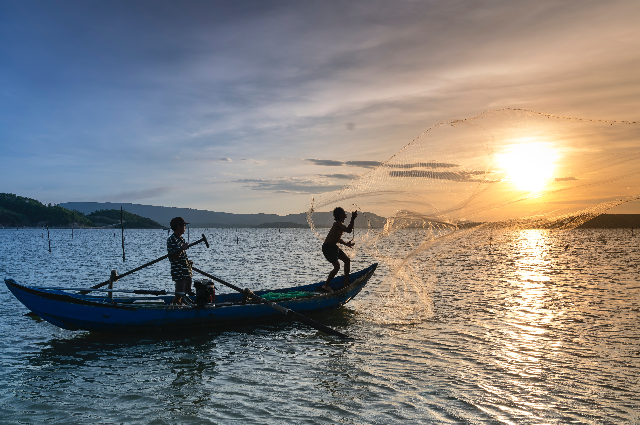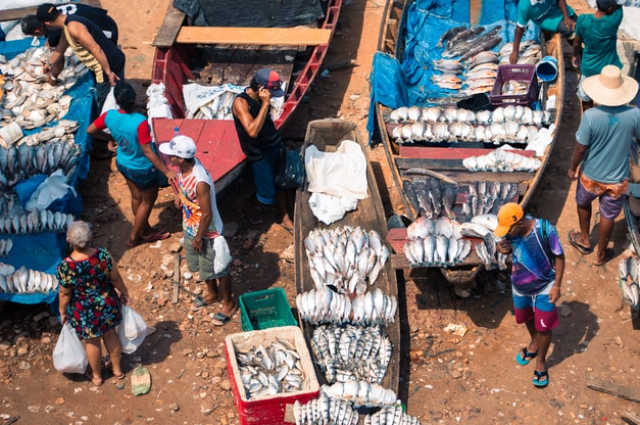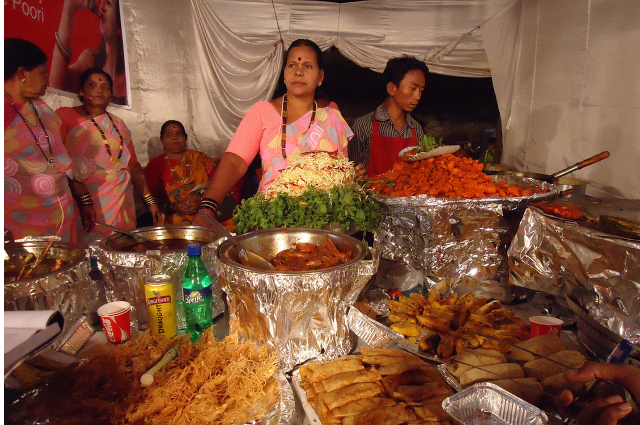
India is the land of festivals, customs, and fascinating traditions. There are countless celebrations, which are followed by people, and each one of them has a unique purpose and significance. One such festival is ‘Narali Purnima’. The word ‘Narali’ signifies the word ‘Naral’, which means a coconut, while Poornima is the full moon day. This festival falls on the full moon day of the holy month of Shravan. This year, Raksha Bandhan is also being marked with the joyous celebrations of Narali Purnima on 22 August. During the sacred day of Purnima, people head to the sea to offer coconut at high tide to show their gratitude towards the sea and to secure their protection while sailing into the sea.
The celebration of Narali Purnima is marked by the Koli community, people living alongside the coastal areas. The central purpose of this day is to offer a coconut to the sea and praying for safety to begin the fishing again. During the monsoon months, the fishing community often stays away from the sea due to rainfalls. And after repairing their boats and fishing net in the break of the monsoon period, it is their time to restart the business. People begin fixing their old fishing nets, paint their old boats, or buy new boats before the arrival of Narali Purnima. On the day of the festival, these boats are adorned with colorful flower garlands. It is a festival of great importance for the fishing community as after the pooja rituals of Narali Purnima, they recommence their trades.

On this auspicious day, the Koli community worships Samudra Dev, which is the God of the Sea, and the Varun Dev, which is the God of the Wind. It is believed that worshipping the God of Sea and Wind will gratify the Gods and they will guard the fishing community from different kinds of calamities. The month of Shravan is similarly dedicated to worshipping Lord Shiva. On the occasion of Narali Purnima, devotees also offer prayers to Lord Shiva as it is believed that the three eyes of coconut are a depiction of three-eyed Lord Shiva. Joyously performing the pooja rituals of these Gods on Narali Purnima can gratify the Lords and people seek their protection from the dangers of the sea.
The ‘Upnayan and Yagyopaweet’ rituals are among the most extensively followed rituals. The Brahmins who perform the ‘Shravani Upakarma’ keep a fast on this day without consuming any form of grains. They keep the ‘Phalahar Vrat’ by eating only the coconut all day long. After completing all the pooja rituals, the people of the fishing community sail in the sea, in their beautifully decorated boats.

Along with a ritualistic quick festival, the Narali Purnima is likewise a gesture of gratitude and respect towards mother nature. Numerous Koli people also believe in planting coconut trees along the coast on this day. Men and women dress up in their traditional attires, as it is an occupational festival celebrated with great devotion. A special sweet is also made with coconut along with coconut rice and savory curry. Women of the Koli community perform their traditional songs and folk dance.
This mainstream festival of the Koli community is celebrated grandly every year. Earlier, many Koli people used to celebrate this festival, by having magnificent seafood festivals and folk-dance evens to flaunt their culture. But due to coronavirus, these celebrations are performed on small scale, with limited rituals and no grand celebrations. The whole Koli community cherishes this day as the onset of a fresh new season for harvesting, the same as the farmers. And their enthusiasm, vibrancy, and celebrations make this festival and their community larger than life.
. . .
Reference:
- www.theculturetrip.com
- www.tripoto.com
- www.wikipedia.org
